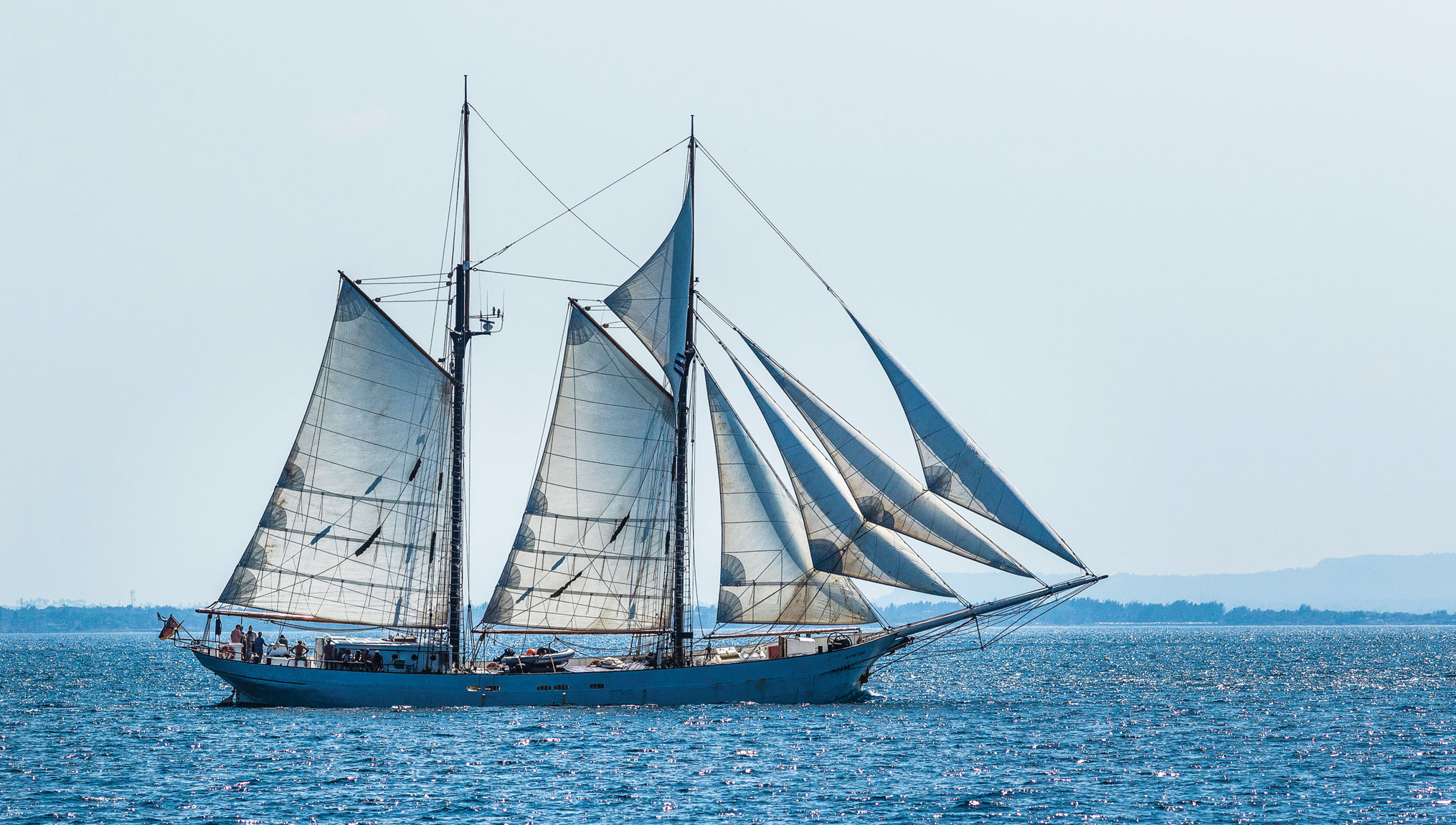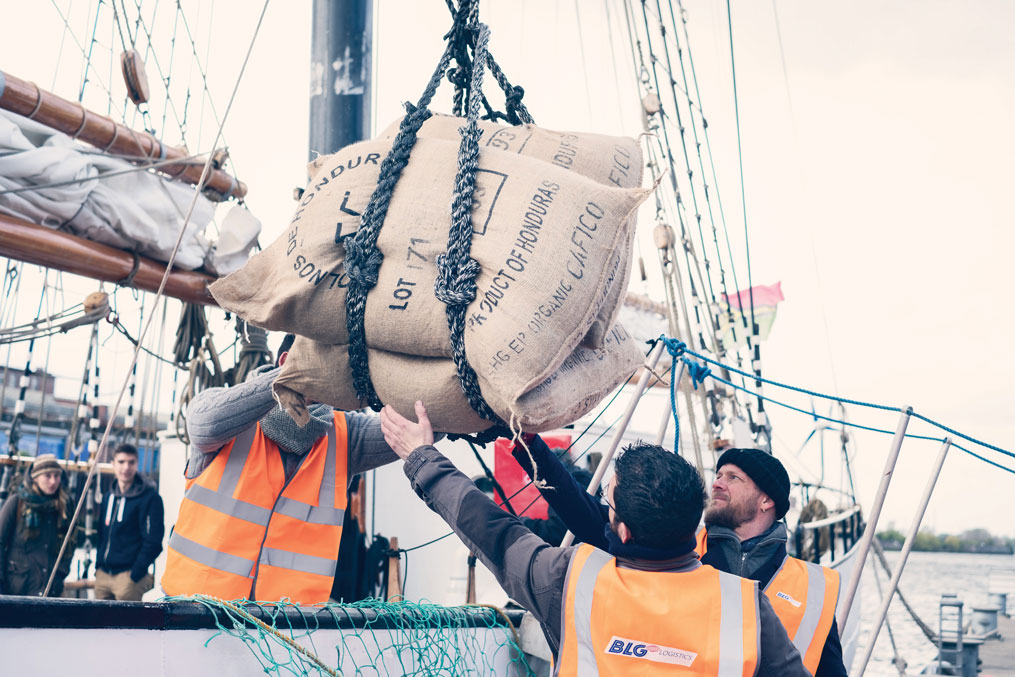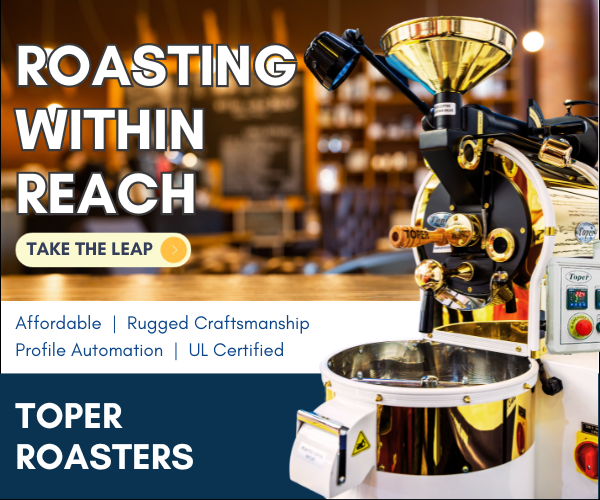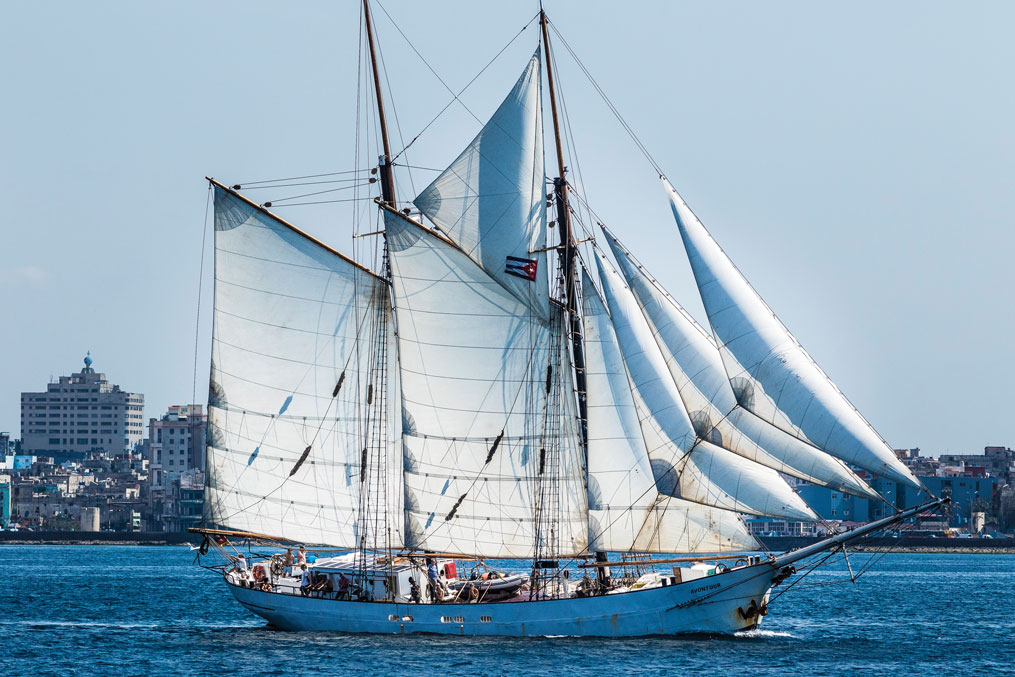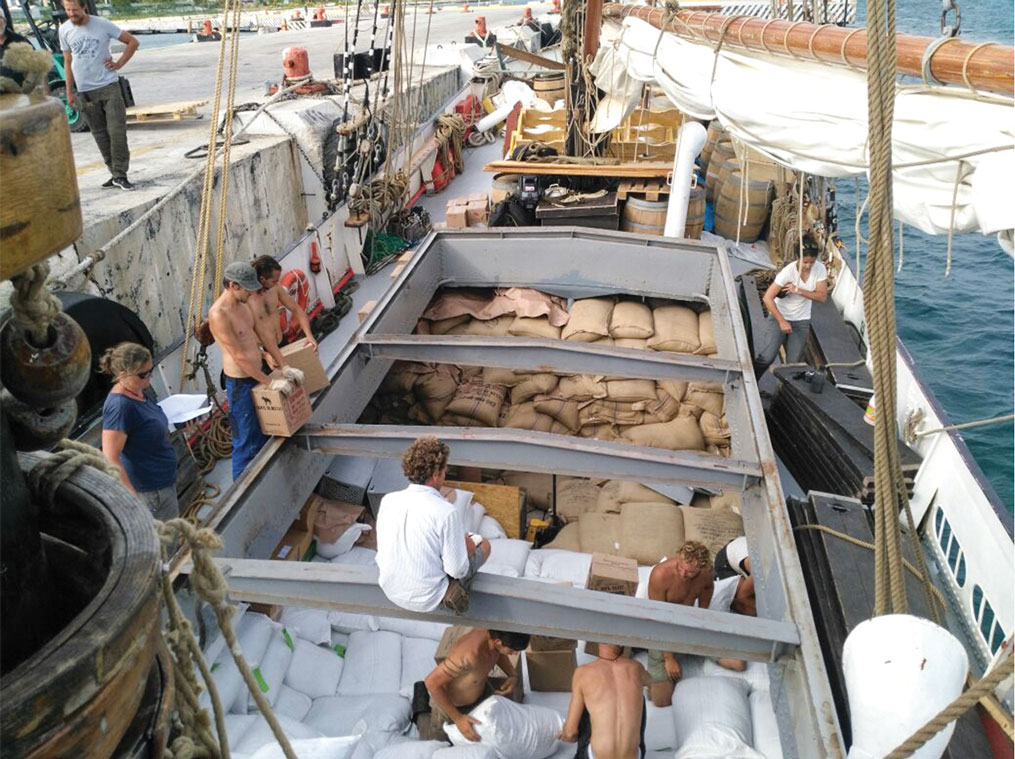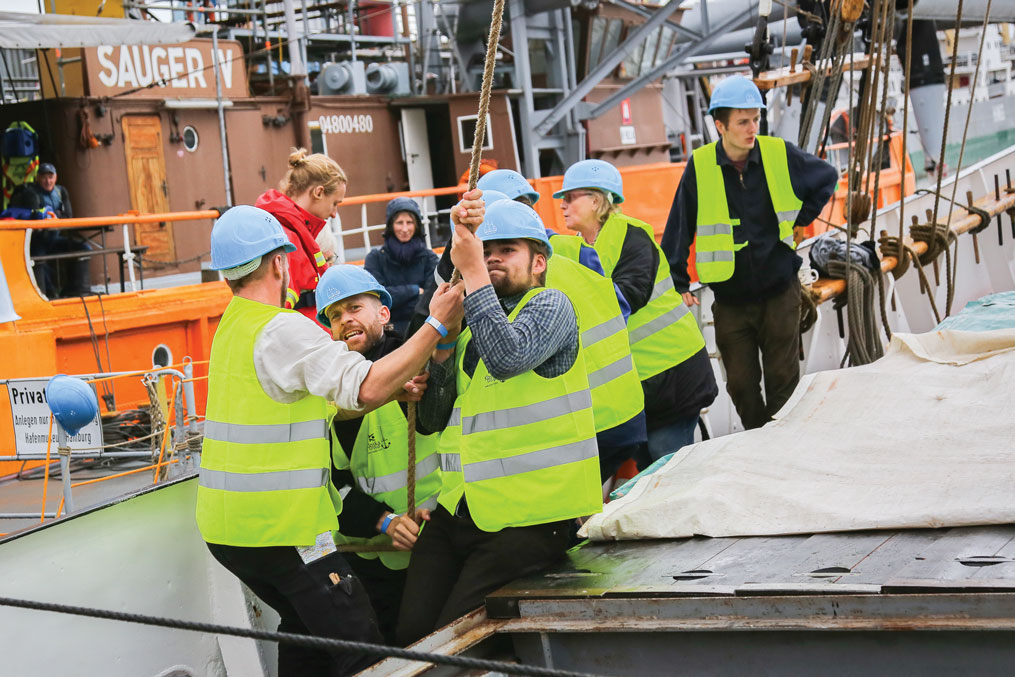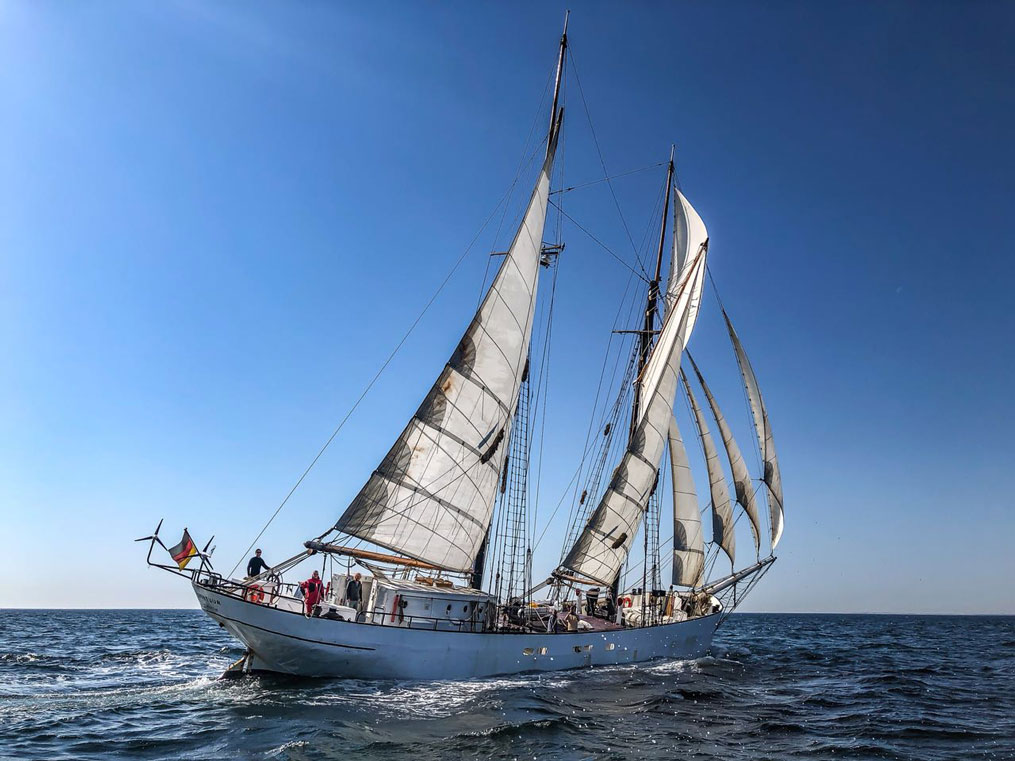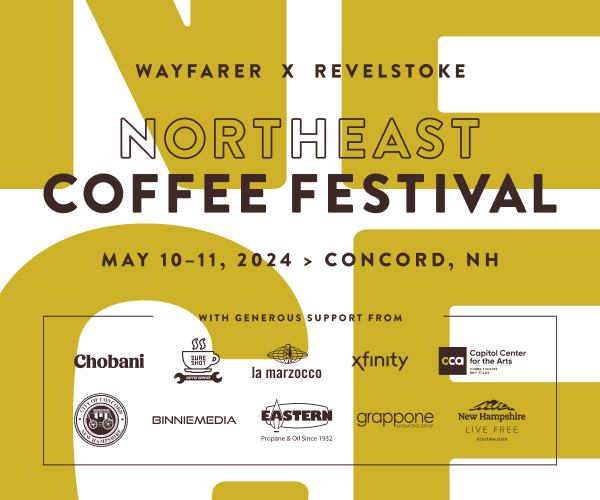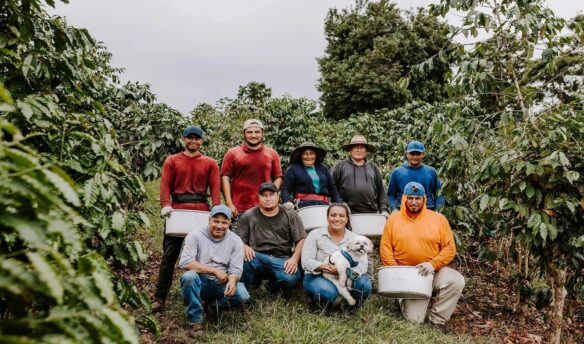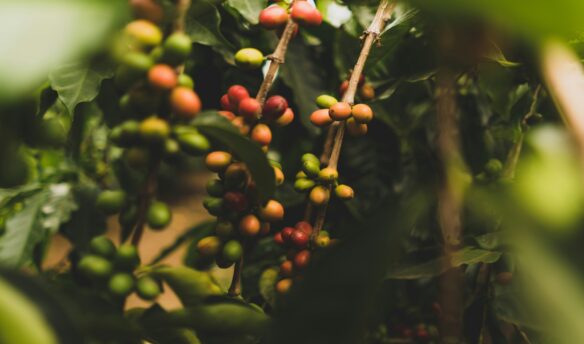Do you know how your coffee gets to you? You probably know which country it comes from; perhaps you even know the name of the farmer.
The modern specialty coffee industry is adept at informing the consumer of all the varied aspects of the supply chain—from farm to mill, roaster to café. But there’s a step usually left out that is so ubiquitous in modern trade that it is hardly thought about: shipping.
The shipping industry is enormous and opaque, spanning the globe in a headache-inducing web of interconnected companies and intermediaries, individual ships flying the flags of distant tax havens, and huge fleets of floating cities. The vast majority of products and commodities are transported via these behemoths, from across the world, out of sight and out of mind.
While ocean shipping is more efficient than air or rail freight, it also accounts for the vast majority of worldwide cargo transportation. And shipping is a notoriously dirty business: the shipping industry accounts for at least three percent of global greenhouse gas emissions and, by 2050, if left unchecked, could produce as much as 17%.
“International shipping is a major contributor to climate change,” says Simon Bullock, a Ph.D. researcher at the Tyndall Centre for Climate Change Research at the University of Manchester in England. “It emits more carbon dioxide a year than Germany.” That’s not to mention other contamination, from wastewater to oil spills and localized air pollution.
With so much discussion within the coffee industry around the issues of climate change and sustainability, it is difficult to ignore the gigantic container ship in the room. But coffee has to get from point A to point B. With the realities of modern commerce and the climate crisis, is there an alternative to cargo ships?
Sailboats: An Ancient Solution to a Modern Problem
Timbercoast, a German-based company that transports cargo across the Atlantic using its schooner Avontuur, is one of a small but growing number of enterprises looking to challenge the established shipping industry by offering a greener way to transport coffee. Founded by master mariner Cornelius Bockermann, Timbercoast has been sailing rum, tea, wine, and other commodities back and forth from Bremen to Honduras, Mexico, and Canada for the past few years.
After finding the Avontuur in 2014 and refitting it with the help of more than 160 volunteers, the team began looking for cargo to transport. Ben Decosse, Director of Business Development at Timbercoast, says that coffee was always at the forefront of the company’s plans. [Editor’s note: Shortly before going to press, Decosse announced his departure from Timbercoast.]
“Coffee has always seemed to be one of those cutting-edge products that is looking to always better itself,” says Decosse, “and so we started knocking on a lot of coffee importers’ doors. We ended up buying some rum, because no one would ship stuff with us, and we only needed to go down to the Canary Islands to do it.” Once in the Canary Islands, they were contracted to pick up 20 tons of coffee in Honduras and set sail across the Atlantic.
The Avontuur, which means “adventure” in Dutch, can carry approximately 80 tons of coffee in its hold, according to Decosse. By comparison, the average 20-foot shipping container holds roughly 22 tons of green coffee, and the largest ships can haul thousands of containers at a time. Sailboat-based shipping, therefore, is not going to be competing with the big companies any time soon.
Slow Coffee
Timbercoast’s might be a niche market, but its mission has inspired a loyal following. Slokoffie is a Bremen-based coffee company that was established specifically to import and roast coffee via the Avontuur. Thomas Riedel-Fricke, alongside cofounder Maik Hembluck, was inspired to start Slokoffie after helping rebuild the Avontuur and becoming motivated by the prospect of carbon-neutral shipping. When it became clear that nobody else was going to fund the ship’s first voyage across the Atlantic, Riedel-Fricke and Hembluck founded Slokoffie and contracted 20 tons of coffee from Honduras.
“Both of us [were] thrilled by the idea to sail cargo, to accomplish ocean transportation in a completely environmentally friendly manner,” says Riedel-Fricke. “No exhaust gases, no noise pollution in the water, just powered by wind and current.”
Taking a chance on 20 tons of coffee with zero coffee experience was a gamble, but today Slokoffie is planning their next shipment and is making new contacts in Colombia as they look to expand their offerings.
The movement toward carbon-free shipping is small, with only a handful of companies currently helming cargo sailboats. However, with the increasing focus on the climate crisis and the vast amount of pollution caused by the shipping status quo, it is sure to increase. To aid this expansion, a European initiative seeks to build small cargo hubs within ports around the North Sea to allow local businesses direct access to sustainably-shipped goods.
For Decosse, the sight of the tiny Avontuur sailing into port beside hulking cargo ships perfectly encapsulates what they are up against.
“These container ships, they can only dodge the world’s attention for so long before real change needs to take place,” he says. “There’s a lot of pressure starting to unfold on them because they’re burning the worst fuels, [fuels] that are illegal on land. Something has to give—if they’re not going to do it, we need to do it. We need to create the demand, and we need to raise the awareness.”
Honduras alone exported nearly 160,000 tons of specialty coffee in 2016, most of it by sea. For comparison, it would take the Avontuur 2,000 trips to transport all that coffee to Germany. Obviously, small-scale schooners will not solve the problem of cargo shipping alone; it will take creativity from innovators, oversight from regulatory bodies, and commitment from traditional shipping companies to enact real change.
The Future of Ocean Transport
Can sailboat shipping be part of the solution, at least on a small scale?
“Shipping needs to decarbonize,” says Bullock, “and sails are part of the solution. Although sail-only ships are unlikely to replace a large proportion of oceanic trade, sail-assisted ships can deliver major gains in energy efficiency.”
At Timbercoast, they are taking this advice and looking to the future. In collaboration with students at Oldenburg University, Decosse says they are drawing up plans for a modern sailboat that would hugely increase their carrying capabilities while utilizing automatic sales and potentially hydrogen technology.
“That would be 330 containers and zero emissions,” explains Decosse. “This is the kind of direction that we’re heading in at the moment—if we’re fast, that ship can be in the water in five years.”
Until then, the Avontuur and other small schooners will continue to navigate around leviathan cargo ships, using the trade winds to carry coffee, cocoa, and rum across the Atlantic in the most sustainable way currently possible.
Cover photo features the Avontuur sailing off the coast of Cuba. Photo courtesy of Timbercoast.
This article was originally published on June 3, 2020 and has been updated to meet Fresh Cup’s current editorial standards.

